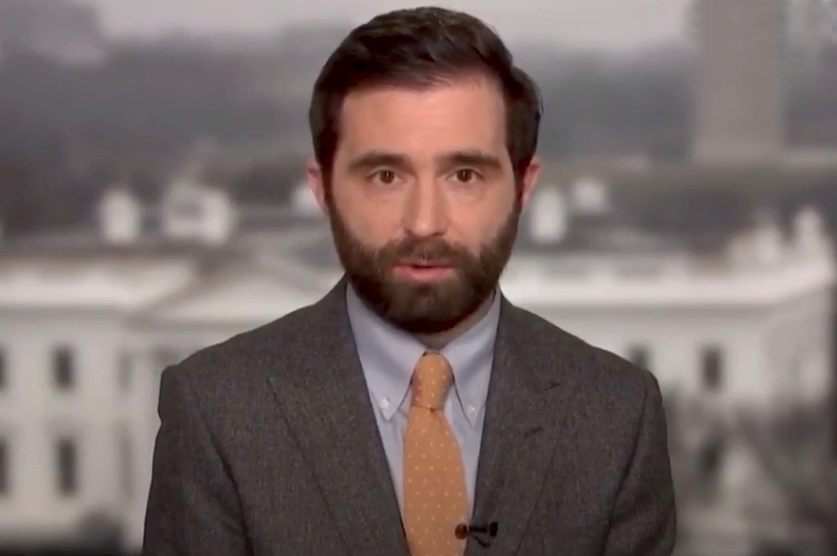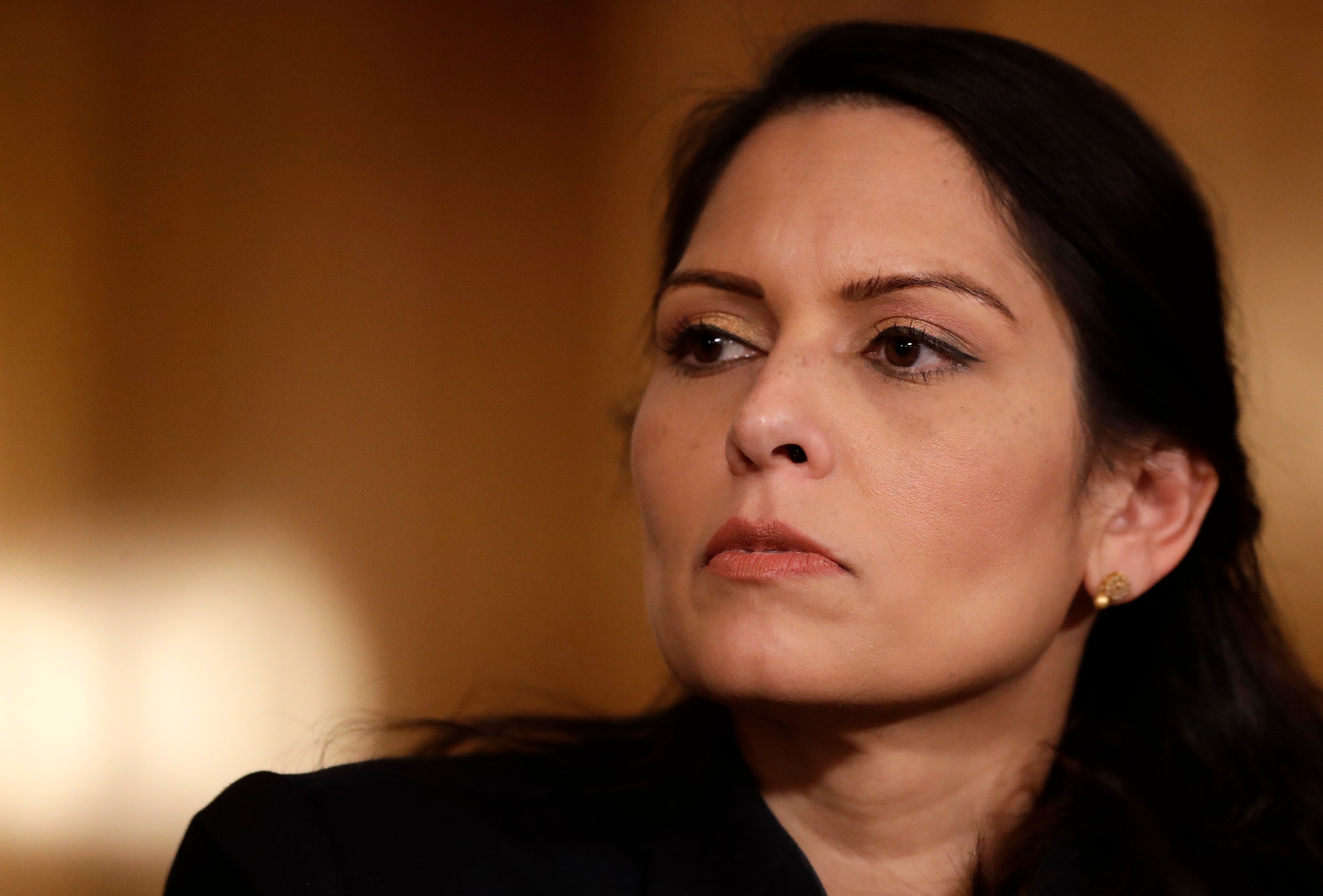New extremism chief appointed by Priti Patel dismissed ‘Islamophobia’ and ‘violent extremism’
Robin Simcox said the term violent extremism was ‘dreamed up’ to avoid mention of Islam

Britain’s new commissioner for countering extremism dismissed the use of the word “Islamophobia”, and urged the government to “push back” on it, it can be revealed.
Robin Simcox, who previously worked for a US think-tank with close links to Donald Trump’s administration, was appointed to the post by Priti Patel last month.
In a September 2019 article, he called for the prime minister to “push back on ‘Islamophobia’” and be “wary” of calls for an internal Conservative Party review.
In the same article, Mr Simcox said Extinction Rebellion, Unite Against Fascism and the far left “need monitoring”.
Earlier that year, in a piece headlined “Left’s Use of Islamophobia a Cynical Ploy to Shut Down Disagreement”, he wrote: “Muslims’ concerns about the prejudice they face in society cannot be ignored. Those concerns, however, must be addressed without throwing around accusations of Islamophobia, a word used to narrow the parameters of legitimate debate.”
Read more:
Mr Simcox also rejected the term violent extremism in a 2016 article, arguing that it was “dreamed up as a way to avoid saying ‘Islamic’ or ‘Islamist’ extremism in the months after the July 2005 suicide bombings in London”.
While responding to a 2019 report by the Commission for Countering Extremism, which he now leads, Mr Simcox said the UK’s official definition of hate crime, as offences motivated by hostility based on perceived race, religion, sexual orientation or disability, was “far too broad”.
Tell Mama, an organisation that records anti-Muslim hate crimes, said there were “clear safeguards” in the law, adding: “There is little knowledge on the actual workings of the hate crime definition and the fact that we are still having this debate after many years shows this.”
In a June 2019 tweet, Mr Simcox appeared to defend YouTuber Mark Meechan, known as Count Dankula, who was convicted over a video showing a dog performing Nazi salutes.

He shared a post listing the case and other controversies as examples of “jokes [that] aren’t to be taken literally”.
Mr Simcox has also risked alienating some community groups, including the Muslim Council of Britain (MCB), by appearing to suggest they are “extremists” that should be “left out in the cold”.
The government has a policy of not engaging with the MCB – the UK’s largest umbrella organisation for mosques, schools and Islamic charities - which dates back to an official’s 2009 signing of a declaration which, a minister claimed, supported violence against foreign forces, including British naval personnel, and Jewish communities around the world.
“It is far-right extremists who have the most to gain from refusing to recognise the lived experience of Islamophobia Muslims face today,” an MCB spokesperson said. “And it is far-right extremists who are benefitting from the wilful misrepresentation of Islamophobia as a word that allegedly limits free speech.”
Mr Simcox was appointed as the interim commissioner for countering extremism last month and the role will see him advise the government on new policies on all forms of hatred.
He said the role was a “great honour”, adding: “Extremism is a scourge that has the potential to impact us all. There can be no place for it in the UK.
“I hope to be able to translate my experience in the counterextremism field into recommendations that can help the government make headway on this key issue.”
The Home Office said the appointment was for six months initially, and would involve advising on how the government “could further harness innovative thinking within the academic and think-tank sector on tackling extremism”.
Before founding his own organisation, the Counter Extremism Group, in July 2020 Mr Simcox was a fellow specialising in counterterrorism at the Heritage Foundation.
The think-tank became known in the US as a major influence on the Trump administration, which dozens of its employees went on to join.
Mr Simcox joined the Heritage Foundation in January 2016, after leaving his role as a research fellow at the right-wing Henry Jackson Society.
In a press release announcing his appointment, the Home Office called the Heritage Foundation “renowned” and noted that Mr Simcox had testified to US Congress on Islamist terrorism.
Stuart McDonald, a Scottish National Party MP who sits on the Home Affairs Committee, called Mr Simcox’s appointment “alarming and troubling”.
“It yet again raises serious questions over the home secretary’s judgment and the direction of travel of the Home Office under her regime,” he told The Independent.
“It is an appointment that requires the most urgent and careful scrutiny and the home secretary must explain why this decision has been made”.
Mr Simcox has voiced support for controversial decisions by the government in the counterterrorism space, such as removing Shamima Begum’s British citizenship and appointing William Shawcross to review the Prevent counter-extremism programme.
The Commission for Countering Extremism was set up in 2017 by Theresa May, but the current government has not formally adopted any of its recommendations.
A Home Office spokesperson said: “Mr Simcox was selected as interim lead commissioner because he has a wealth of expertise in the area of countering extremism having worked at a senior level for organisations including the Counter Extremism Group.
“The role of interim commissioner is independent of government but all individuals appointed to roles like this are carefully vetted.”
Mr Simcox declined to comment. The Home Office said the government would launch a full recruitment process for the commissioner role and “set out the future direction” of the Commission for Countering Extremism in due course.
This article was amended on 12 May 2021. It previously stated the government’s policy of not engaging with the MCB dated back to an official’s comments on Israel, however this should have referred to the official signing a declaration.
Join our commenting forum
Join thought-provoking conversations, follow other Independent readers and see their replies
Comments
Bookmark popover
Removed from bookmarks